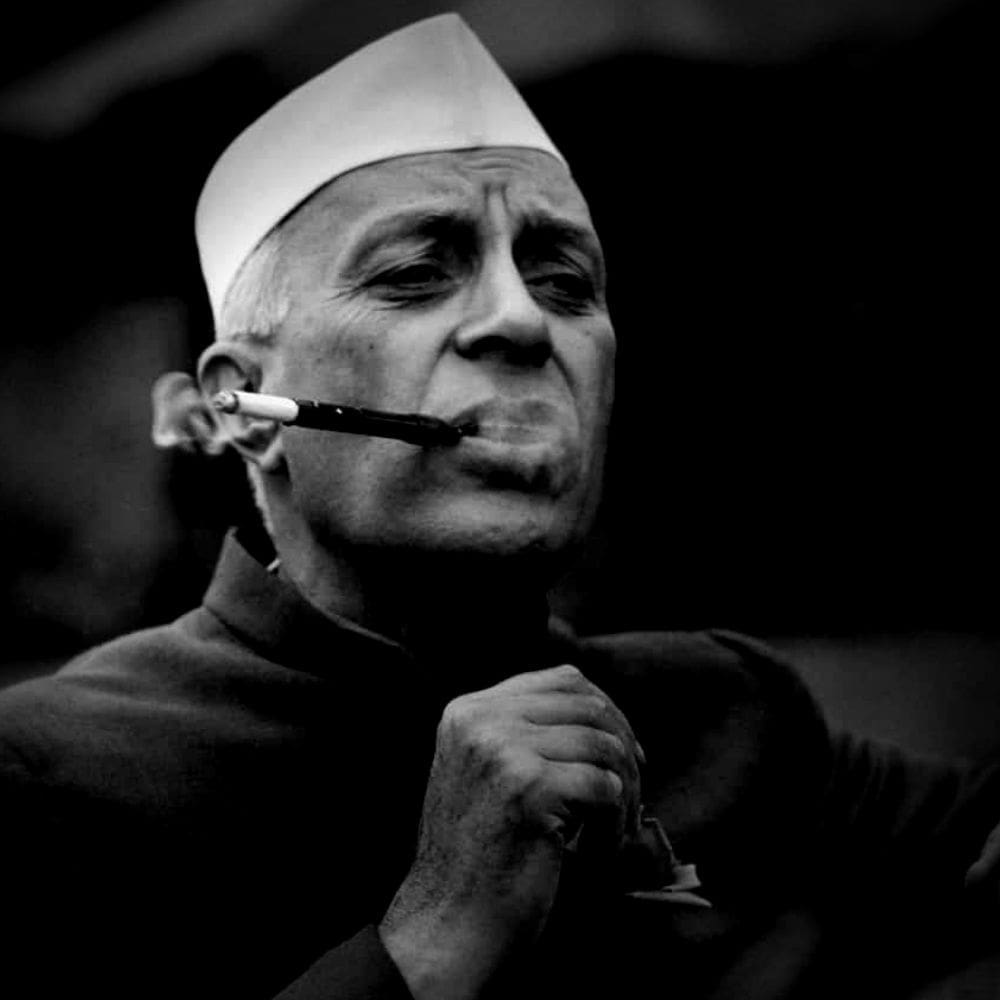INDEPENDENT INDIA DEPENDENT UPON THE BRITISH!
NEHRU PLUMPED FOR THE BRITISH MOUNTBATTEN God only knows why India chose to appoint Mountbatten, a British, as the Governor General (GG) of India after independence! Jinnah didn’t do that blunder—he himself became the GG of Pakistan. Mountbatten as GG managed what the Raj desired—to the detriment of India. It was thanks to Nehru that Mountbatten became the GG. Why did the freedom-fighters choose a foreigner, a British, for the top post? Weren’t competent Indians available? If Jinnah as GG could manage Pakistan, couldn’t an Indian as GG manage India?
Nehru had adopted Mountbatten as his guru and guide. Reflects much both on Nehru’s colonial mindset, and his judgement of people. Where Nehru was not readily amenable to what the Raj/Mountbatten wanted, Mountbatten reportedly used his wife Edwina to get Nehru around. Maulana Azad, a pro-Nehru person, expressed bewilderment in his autobiography as to how a person like Jawaharlal was won over by Lord Mountbatten; mentions Nehru’s weakness of being impulsive and amenable to personal influences, and wonders if the Lady Mountbatten factor was responsible for certain [improper] decisions.
Mountbatten was a representative of Britain, and it was natural for him, rather, expected of him, to safeguard and promote the interests of Britain; and keeping the British Government informed of the goings on, including confidential matters. India and Pakistan also had British army chiefs. In case the Indian leaders felt that having a British GG, and a British C-in-C, did help in some way, they should have accounted for the fact that it could also be counter-productive in many cases—and it did prove to be so. Their basic allegiance being to Britain, between them, these British were able to manipulate matters—many contrary to the interests of India.
MOUNTBATTEN & THE PARTITION MAYHEM Much is made of Mountbatten, but he had been a failure in most of his past assignments. He belonged to navy, and in the Admiralty he was long known as the “Master of Disaster”.
Mountbatten was widely held responsible for his gross mismanagement resulting in the horrifying scale of the partition mayhem. Please check Blunder#15. Winston Churchill had accused Mountbatten of killing two million Indians! Mountbatten’s critic Andrew Roberts had commented: “Mountbatten deserved to be court-martialled on his return to London.”
After the partition and its tragedy, there had been three assassination attempts on Jinnah by the aggrieved victims. Jinnah was so rattled he had remarked that the person most responsible for the disaster of partition was Dickie Mountbatten.
Wrote Maulana Azad:
“I also asked Lord Mountbatten to take into consideration the likely consequences of the partition of the country. Even without partition there were riots in Calcutta, Noakhali, Bihar, Bombay and Punjab… If the country was divided in such an atmosphere there would be rivers of blood flowing in different parts of the country and the British would be responsible for such carnage… Without a moment’s hesitation Lord Mountbatten replied, ‘At least on this question I shall give you complete assurance. I shall see to it that there is no bloodshed or riot. I am a soldier, not a civilian. Once partition is accepted in principle, I shall issue orders to see that there are no communal disturbances… If there should be slightest agitation, I shall adopt measures to nip the trouble in the bud… I shall order the Army and the Air Force to act and use tanks and aeroplanes to suppress anybody who wants to create trouble.’”
Wrote Durga Das: “I concluded my report by stating that Mountbatten had hurried through with partition without making sure that the Boundary Force would be able to maintain peace.”
MOUNTBATTEN MACHINATIONS IN J&K, JUNAGADH & HYDERABAD Britain wanted Kashmir, a strategic territory, to be under their influence. That was possible if it was either independent or with Pakistan, which was pro-West. Towards this aim, Mountbatten ensured that as GG he did not remain just a titular head. He manipulated to get himself appointed as the ‘Head of the Defence Committee of India’ ensuring that the C-in-C of both the Indian and the Pakistani Army and the Supreme Commander, Auchinleck, reported to him. In that capacity, Mountbatten secretively co- ordinated with the transitional British Commander-in-Chief of the Pakistan Army; had private strategy sessions with the transitional British C-in-C of the Indian Army, without the knowledge of the Indian leaders; and manipulated to the extent feasible, decisions and actions in the direction the British Government wanted.
Sarila points out in ‘The Shadow of the Great Game’:
“Another factor that distinctly influenced the situation was Nehru’s offer to Mountbatten to chair the Defence Committee of the Indian Cabinet. It was this committee and not the Indian Cabinet as a whole that made decisions on Kashmir war policy. This power gave the governor-general enormous power to influence the course of fighting.”
Nehru was mainly responsible for having Mountbatten appointed as the GG of independent India; and was perhaps the only factor in making him the Head of the Defence Committee.
Wrote Durga Das in ‘India from Curzon to Nehru & After’:
“…Patel added that Nehru was unduly amenable to Mountbatten’s influence. Nehru had ‘always leaned on someone’. He was under Bapu’s protective wing and ‘now he leans on Mountbatten’.”
The role of Mountbatten in the integration of the three states that created problems—Junagadh, Hyderabad and J&K—was dubious. Where the British interests were not affected—in respect of the other Princely States— he did try to help India. But, where the British interests clashed with the Indian interests, he helped the British interests. It was Mountbatten who made Nehru refer the J&K issue to the UN, thus internationalising a domestic issue. Mountbatten attempted to also refer the Junagadh and the Hyderabad cases to the UN.


